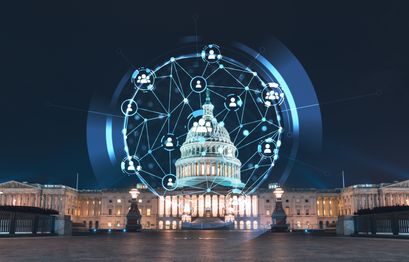- 79% of Americans believe social media leads to a more divisive political landscape.
- Only 27% of Americans believe they have real influence over how they are governed.
It's no secret that there is a rift in American politics. More obvious than ever, it's as if the country is divided into two camps and a large majority of Americans believe social media is fanning the flames. However the rest of the world seems to disagree.
Much has been said about social media’s influence on our lives, both in positive and negative terms. While we should definitely be aware of its negative potential, there is always room for nuance. Throwing the baby out with the bathwater is unnecessary.Jonathan Merry, CEO of Bankless Times
While 64% of Americans believe that social media harms democracy, only 35% of the citizens of many developed countries feel the same way.
The research team at BanklessTimes.com investigates this issue further, we dive into the data behind this discrepancy, and provide possible explanations on why it's there.
A Deep Mistrust in social media
Facebook, Twitter, and WhatsApp have all become a kind of distribution network for news and opinions worldwide. Couple that with the fact that 60% of the global population uses social media, and you end up with just a few companies with immense influence over the public sphere.
A study conducted in late 2022 analyzed the opinions of 20 developed countries (the US being among them) on social media and its influence.
The research showed that the US is a strong outlier, with 64% of US citizens believing social media has a negative impact on democracy, while a median of 35% of the citizens of the other countries feel the same way.
It is not just regular citizens that believe this, American social psychologist Jonathan Haidt also holds that social media is a negative influence on many democracies, not just the US.
However, it needs to be mentioned that the other 19 countries within the study do not have an overwhelmingly positive view of social media. In fact, a median of 84% of their citizens believe that, through rumors and false information, social media platforms have made people easier to manipulate.
Where they seem to disagree the most is in the positive effects of social media.
Citizen’s influence and participation in Politics
Many of the polled countries believe being informed makes them better citizens, and have a more positive view of social media as a source of information, whilst also being aware of its potential for manipulation.
For one thing, many of the countries that feel they have an influence over the politics in their country also believe social media is a good thing. In Sweden, 65% of its citizens believe they have influence over their political system, and 66% believe social media is a good thing. In comparison, only 27% of US citizens feel they have substantial influence.
69% of Americans believe social media made people less civil when discussing politics. In Singapore, only 27% believe this, while 76% of Singaporeans believe social media was good for democracy.
79% of Americans believe social media made people more divided in their opinions, while in Malaysia, it's 43%. Keep in mind that 71% of Malaysians believe social media is good for democracy.
This idea of social media harming democracy correlates, at least to a certain degree, with the general positive (or negative) opinion on the platforms themselves and the degree to which people believe they can influence their political systems.
Russian Disinformation
Perhaps the most damning evidence is the Russian interference of the 2016 US elections. During these elections, the Russian government interfered by specifically using social media, a very direct attack on US democracy.
This documented spreading of fake articles and disinformation on social media platforms, via bots and fake ads, serves as real evidence of how disruptive social media, as a source of information, can be.
Contributors











